OUR COMMITMENTS
The history of Solo Paris began 30 years ago with the creation of SOL'S, its clothing brand designed for the promotional market. From day one, its creator Alain Milgrom and his teams have had a clear goal: to change habits by breaking the codes of a market exclusively focused on low prices and mass consumption. To achieve this, quality and ethical commitment to partners, suppliers and customers have become key issues. 30 years later, Solo Paris’s teams still have the same objective: to offer quality garments tailored to user needs, which are both eco- and people-friendly. Our approach is committed, progressive and focused on continuous improvement.
Today, all projects carried out by Solo Paris and its brands are part of the wear&care programme, launched on January 1st, 2021.
Wear&Care programme

Wear&Care is far more than a programme, it is a global commitment. It is both a way of bringing together all our projects and a tool to measure our ethical, environmental and social progress in relation to our goals. Finally, it is a reference we take into account in each of our strategic decisions.
Its content is not fixed, quite the contrary, we are keen to add new actions to keep our commitments whenever possible.
We have always taken many actions aimed at reducing our environmental impact and improving our social footprint. We now need to interconnect them, so that each action is more consistent with the others, and to link them to clear and well defined goals.
Ecological and social issues are fully interdependent and interwoven: one cannot exist without the other and responses to one also have an impact on the other. We must therefore consider them as a whole and this is why we launched the wear&care programme, which allows us to provide a global response to our actions. It is not just another document or speech. It aims at bringing all our projects under one roof in order to be able to measure the progress towards our objectives. To do this, we rely on three pillars that allow us to organise our actions according to different criteria.
The wear&care programme relies on three pillars specific to Solo Paris and its activity to organise its actions and measure their impact: PRODUCT, PEOPLE and PLANET.
The purpose is to categorise each of our actions in order to provide a clear and relevant picture of what we are doing to improve our social footprint and reduce our environmental impact.
Pillars
 Product
Product People
People Planet
PlanetProduct
Product is our [ raison d'être ]. Our business is to produce garments that allow everyone to express their uniqueness. Our obligation is to produce quality garments that are designed, manufactured and marketed with respect.It is therefore logical that we put the product at the heart of the wear&care programme and that we work on several areas of continuous improvement: quality, the materials used and the management of our offer.
"In such a changing textile environment, the greatest risk would be to stand still" - Sophie Lorenzini, Collection Manager, Solo Paris
The making of a Solo Paris garment
Quality

What has always set us apart is the quality of the garments we produce. Today, we still believe that the better is the quality of garments, the more beneficiaries there will be: our customers, who will benefit from a promotional medium that matches their image; users, who will reuse it many times; the planet, which will be better off if the garment is worn many times and not changed all too often.
By promoting quality, we help limit over-consumption and its environmental and social consequences.
At our head office, we have a dedicated quality department that works upstream and downstream of production by performing a series of tests on materials, seams, products and their accessories to check and confirm their wear resistance, maintenance conditions, deformation, colourfastness and reaction to the various product customisation techniques. At production sites, we have agents responsible for making sure that our quality charter is respected throughout the chain.
For this purpose, they also carry out tests on products at each stage of the production chain and ensure that the quantity of scraps is as low as possible in order to limit waste.
To measure the continuous improvement of the quality of Solo Paris brands’ products, we use the “quality return rate” as an indicator, i.e. the proportion of products returned because of quality issues.
Materials

To reduce the environmental impact of our business, we need to offer ranges that are made up of ecologically sounder materials while meeting our customers’ expectations and ensuring continuity in our offer, so that neither they nor we have to destroy existing stocks. We must therefore lead this transformation and accompany them so that the change in habits takes place slowly but surely.
From 2021, all new products of Solo Paris’s brands are made from organic cotton or recycled polyester. Initially, we are offering the most sought-after products (t-shirts, polo shirts, sweatshirts and accessories for men, women and kids) in order to make these materials find their place in the market. At a later stage, we will offer wider organic or recycled ranges so as to gradually replace all collections.
At the same time, we are updating some of our signature models by proposing them in eco-friendly versions for next stock replenishments.
The indicator we use is the proportion of items made of organic or recycled materials out of Solo Paris’s offering. Today, this proportion is 6.5% but we want it to become 22% by 2025. NB: 100% of RTP Apparel range is made of organic cotton since the creation of the brand.
Offer

Another way to limit our energy consumption is to propose an offering that perfectly matches market needs and expectations in order to avoid overproduction. In our market, it is also important to keep producing the items we offer to our customers so that they do not have to build a new wardrobe every year and destroy items whose production is stopped.
We consult with our customers on a regular basis in order to introduce our collection plans for the coming years to them and get their approval. This collaborative work is essential to meet market expectations both in terms of new and discontinued products. We offer our customers a picking service so that they can order only what they need, without having to manage surpluses. We plan the discontinuation of products well in advance so that everyone can make plans. If, however, products are not sold, either we give them to the most needy or we sent them to recycling companies. In any case, we never destroy any garment: all of them have a second life in a way or another.
To measure our performance in terms of range management, we use the number of items available every year, their life cycle and the number of discontinued and unsold products (that will be distributed to the most needy or recycled, as appropriate).
Today, all Solo Paris's brands offer 480 items, their life cycle is on average 8 years and in 2021 we have discontinued 47 products.
People
Behind all Solo Paris brands’ products, there are people who have imagined, designed, manufactured, transported and sold them, and those who wear them. Therefore, products could not exist without these people. This is why many of our projects are aimed at improving living conditions inside and outside the workplace. Solo Paris is committed to guaranteeing security and respect for people and for their working conditions behind every garment of its brands.
To keep this strong commitment, we organise our actions along two lines. The first one focuses on working conditions of workers who participate in the manufacture of products, whereas the second one focuses on the contributions we make to associations or organisations that aim to improve the living conditions of concerned people.
Actions for the well-being
training and health of populations:
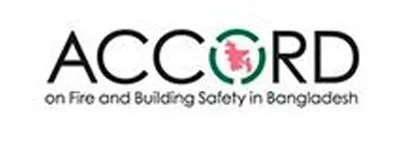
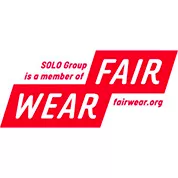
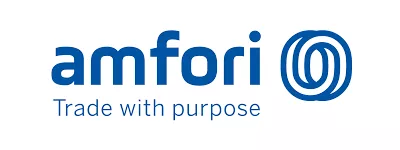

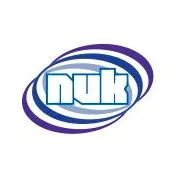
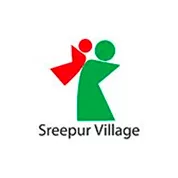
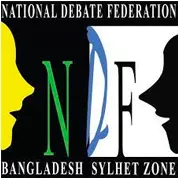
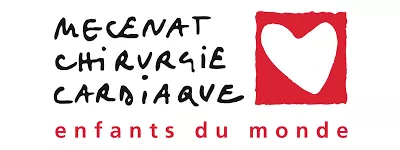
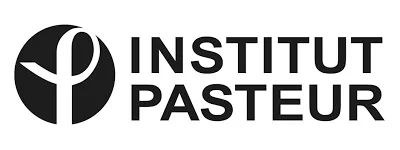
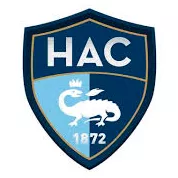
By signing this agreement, brands commit themselves as they are responsible in case of accident. This is why ACCORD participates in financing safety remediation works of factories who signed the agreement, carries out many inspections (more than 3,800 since 2013) and organises safety training courses within these factories. By signing this agreement, Solo Paris undertakes to ensure all its partners comply with safety requirements within their companies. By committing itself alongside 190 other signatory brands, Solo Paris helps to improve labour conditions in the Bangladeshi textile industry.
The Fair Wear Foundation is an independent multi-stakeholder organisation that works with 140 garment brands, NGOs, trade unions representing garment workers and governments. It aims at seeing a world where the garment industry supports workers in realising their rights to safe, dignified, properly paid employment. To do this, the FAIR WEAR FOUNDATION has developed a code of conduct based on 8 labour standards that all partners undertake to comply with:
To ensure factories comply with this code of conduct, local audit teams assess them through on-site and off-site interviews with workers, document inspections and health and safety inspections. They then share their findings and recommendations for improvement with the brand and factory management. The brand and factory management create a concrete action plan with a clear implementation schedule to address all issues raised. Several audits are then carried out to ensure that this implementation is effective and that all code of conduct standards are fully complied with.
Solo Paris is a member of amfori, the leading international business association that supports open and sustainable trade. We are improving the social performance of our supply chain through amfori BSCI. For more information, please visit www.amfori.org
Convinced that differences strengthen us, the team is made up of women and men with very different profiles, both in their professional backgrounds and in their private dimension. Behind every product and every Solo Paris’s brand, there are women, men, young and old people, cultures and traditions from all over the world, all kinds of families and beliefs. There is no room for discrimination in the group. Quite the contrary! Multiculturalism is part of our DNA and of the richness of our company, we are proud of it and this will not change! By the way, company agreements emphasise the prohibition of any kind of discrimination on any basis whatsoever (recruitment, career development, remuneration, access to training, etc.).
For Solo Paris, each employee represents a link in the chain, which means that if a link is missing, the chain gets broken. This is why Solo Paris is one of the few companies in France that implemented an equal profit-sharing among employees: whatever the position or the wage, they all receive the same amount.
The Solo Paris's staff consists of 200 people in France, Europe, our subsidiaries and Asia. At our head office, the average age of our employees is 39.9 years, the average length of service is 6.5 years and more than 60% of our staff are women.
GENDER EQUALITY INDEX: With a strong belief that diversity and inclusion are powerful levers for success within companies, Solo Paris has always strived to promote equal opportunities and fight against all kinds of inequalities.
Today, the result of the Gender Equality Index reflects our commitment, as we have achieved a score of 99/100.
This index is based on the following 4 indicators measured over a rolling 12-month period:
Wage gap between men and women,
Gap in wage growth, including promotion,
Percentage of women receiving a pay rise in the year following maternity leave,
Number of employees of the underrepresented gender among the top 10 earners.
Solo Paris has always believed that its strength lies in its employees and their diversity. From the outset, the management has been aware of openness to both men and women as a source of collective success and individual well-being.
Today, Solo Paris is proud of this result, but also and above all of the diversity within its teams. We will continue to promote equal opportunities within our teams, as we have always done.
Video previews
The project provides a huge range of services including safety, shelter, food and nutrition, adult literacy and education, comprehensive health care, livelihood and life skill training, child safeguarding and protection, and social reintegration.
The Sreepur Village in numbers in 2019:
154 mothers benefited from the literacy programme
160 mothers and 350 children were provided with a home
212 children were sent to school
5 abandoned children were placed in foster families
Video previews
At the same time, Solo Paris has been involved in the Graines de Footballeuses association since 2020, which aims to develop, organise and promote women's football, particularly among young players. By supporting this association, we help to promote the values of football and, more generally, those of sport, and we work to ensure that women have the place they are entitled to in a world that is still too male-dominated.
Planet
As our future is inextricably linked to that of the planet, we are fighting at all levels to preserve it. We are committed to reducing our carbon footprint and that of our products as much as possible, and to seeking to move our business towards sustainable consumption and practices. To achieve this goal, we are working on several fronts: the materials used in the manufacture of our garments and the reduction of our energy consumption, particularly during production and logistics activities.
"Companies are in the best position to ensure the world stops deteriorating" - Sylvain Breuzard,Greenpeace France, l'ADN, 07/11/2020
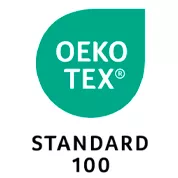
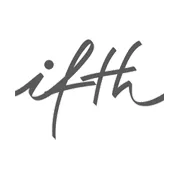


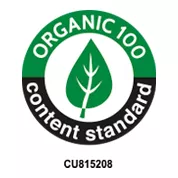
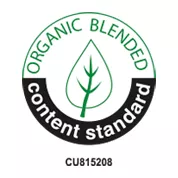
Looks like you speak PLACEHOLDER,
would you like to visit this site in PLACEHOLDER?











